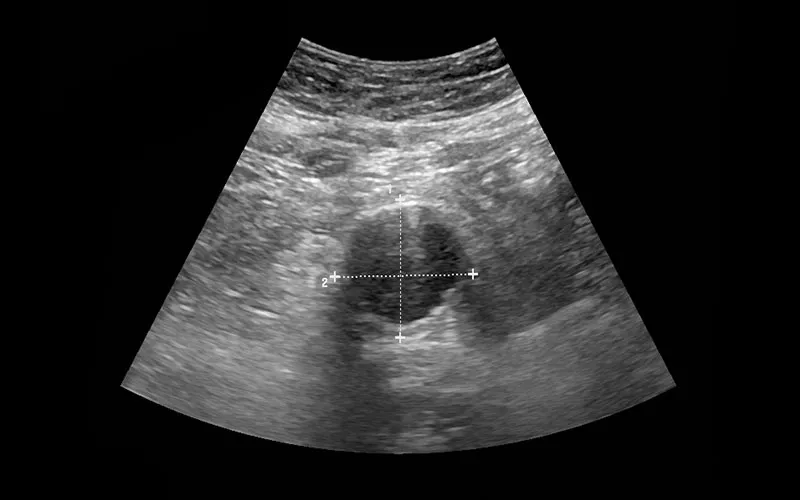


Abdominal aortic aneurysm, or AAA screening, checks for a bulge or swelling in the aorta. The aorta is the main blood vessel that carries blood from your heart to your stomach. This bulge is called an abdominal aortic aneurysm, or AAA. This can be a severe medical condition if not detected early because this bulge can grow bigger and eventually rupture, causing a life-threatening situation.
Often, abdominal aortic aneurysms are asymptomatic. Sometimes the patient may feel pain in their stomach near their naval or a pulsing sensation in their abdominal area. However, if the bulge ruptures, the patient will experience severe abdominal or back pain, dizziness, sweating, shortness of breath, fainting or passing out, and a rapid heart rate.
The treatment of an AAA greatly depends on the size and location of the aneurysm. Small AAAs can be managed by constant monitoring via CT or ultrasound scans every six months. Patients will be advised to keep their blood pressure under control, quit smoking, and lower their cholesterol. However, larger AAAs may require surgery.
To get a high-quality aortic aneurysm screening, contact us at North Atlanta Vascular and Vein Center (Suwanee/Johns Creek, Alpharetta, Cumming and Lawrenceville). We provide safe and accurate screenings.
If you are a male with a history of smoking, you should ideally receive a one-time screening for AAA between 65 and 75. The same goes for women aged above 70. In the case of males with a family history of AAA, the screening should be done at age 60. If you are a male or female with a family history of AAA, you should talk to your physician about having a screening done.
Abdominal aortic aneurysm screening is done with a simple ultrasound scan. There is no pain, radiation, or other risks involved in the screening. You will need to fast for at least four hours and drink water in moderation before the screening.
Arteriosclerosis, or "hardening of the arteries," is the most common cause of AAA.
You need to reduce the amount of cholesterol and sodium in your diet. Make sure to eat lean meats and plenty of fruits, vegetables, and whole grains.
Although aneurysms contribute to more than 25,000 deaths in the US each year, you can live with an aortic aneurysm if it is detected and treated in the early stages. Aortic aneurysm surgery has a high success rate, with about 95% of people who undergo aortic aneurysm surgery recover fully.
AAA screening can detect an abdominal aortic aneurysm before it ruptures. If an AAA is detected, you can have regular scans to monitor it or even have surgery to prevent it from rupturing if needed. Studies show that screening can reduce the risk of dying from an AAA by half.
Your doctor will discuss your result at the end of the test. In case of a problem, you will be a confirmation letter of the result and the next steps. There are four potential test results.